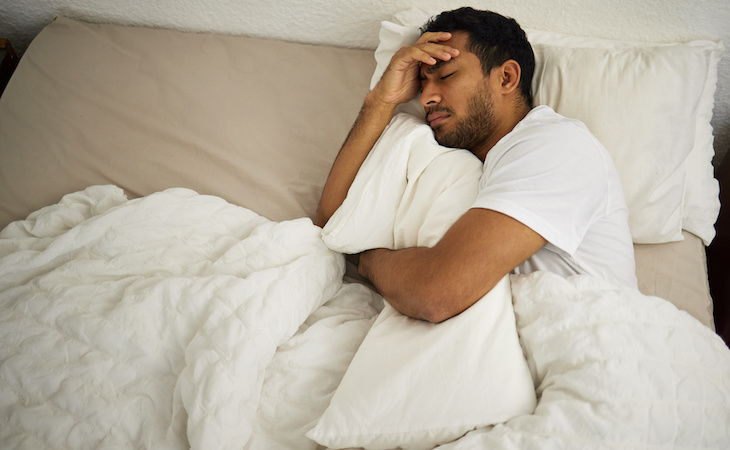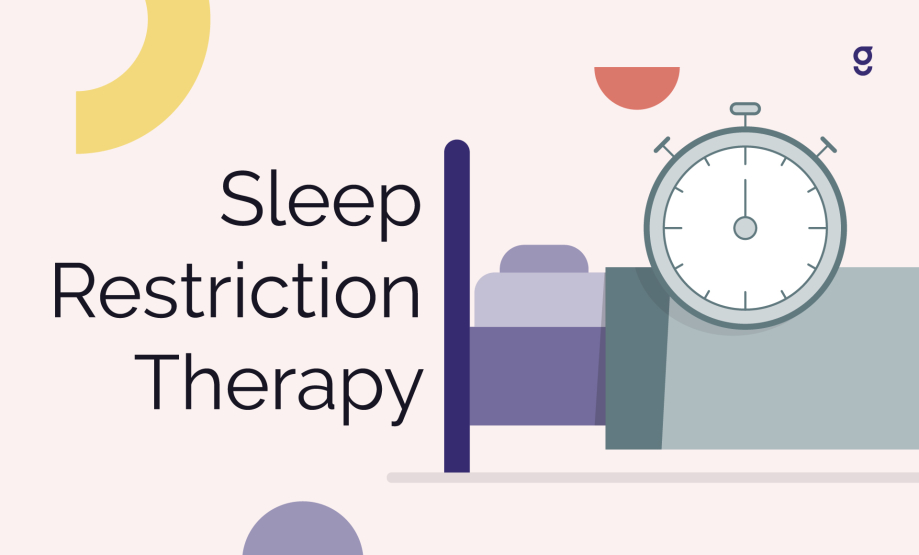Efficient Treatment Solutions for Handling Rest Disorders and Enhancing Relaxed Rest
In the realm of health care, the administration of sleep disorders and the pursuit for restful rest are pivotal elements of overall health. As we browse the elaborate landscape of rest disorders and seek to boost our rest experience, a deeper understanding of these therapy options may hold the trick to unlocking a much more rejuvenating and fulfilling restorative journey.
Cognitive Behavior Modification for Sleep Problems (CBT-I)
Cognitive Behavior Modification for Sleeping Disorders (CBT-I) is a structured, evidence-based therapy approach that focuses on resolving the underlying factors adding to sleep disruptions. This type of therapy intends to change behaviors and thoughts that exacerbate sleeping disorders, inevitably advertising healthy rest patterns. CBT-I commonly entails numerous vital parts, consisting of cognitive treatment, rest limitation, stimulation control, and rest hygiene education.
Cognitive therapy assists individuals identify and change negative thought patterns and ideas regarding rest that may be hindering their ability to drop or remain asleep. Sleep limitation includes limiting the quantity of time spent in bed to match the individual's real rest period, consequently increasing sleep efficiency (cognitive behavioral therapy for insomnia (CBT-I)). Stimulus control methods help develop a strong organization in between the bed and sleep by encouraging people to head to bed just when sleepy and to stay clear of taking part in boosting activities in bed
Furthermore, rest health education and learning concentrates on developing healthy and balanced rest routines, such as maintaining a constant rest routine, developing a relaxing bedtime regimen, and maximizing the sleep setting. By attending to these elements comprehensively, CBT-I uses an effective non-pharmacological treatment for taking care of sleeping disorders and boosting total sleep quality.
Sleep Hygiene Practices
Having established the foundation of cognitive restructuring and behavior alterations in resolving sleep problems with Cognitive Behavioral Therapy for Sleeplessness (CBT-I), the focus now moves in the direction of checking out essential Rest Hygiene Practices for preserving ideal sleep quality and general wellness.
Rest hygiene techniques encompass a series of routines and environmental elements that can dramatically impact one's ability to go to sleep and stay asleep throughout the evening. Constant sleep and wake times, developing a relaxing going to bed routine, and enhancing the rest setting by keeping it dark, quiet, and cool are crucial elements of great sleep health. Restricting direct exposure to displays before going to bed, preventing stimulants like caffeine near to going to bed, and involving in routine exercise throughout the day can also promote much better rest top quality.
Moreover, practicing relaxation strategies such as deep breathing workouts or reflection before bed can help relax the mind and prepare the body for rest. By including these rest hygiene techniques right into one's everyday routine, individuals can develop a healthy and balanced rest pattern that supports relaxed rest and general wellness.
Leisure Strategies and Mindfulness
Executing relaxation strategies and mindfulness methods can play a pivotal function in promoting a sense of calmness and advertising top quality rest. Furthermore, guided imagery can assist move individuals to a serene location in their minds, assisting in stress reduction and enhancing rest top quality.
By integrating these practices into a bedtime routine, people can signify to their bodies that it is time to prepare and take a break for rest. Generally, integrating leisure strategies and mindfulness techniques can substantially contribute to handling sleep problems and improving total rest high quality.

Medication Options for Rest Disorders
After discovering leisure techniques and mindfulness techniques as non-pharmacological interventions for enhancing rest quality, it is necessary to consider medicine choices for people with rest disorders. In situations where way of life adjustments and treatment do not provide adequate relief, medication can be a valuable device in managing rest disruptions.
Generally prescribed medicines for sleep disorders include benzodiazepines, non-benzodiazepine hypnotics, antidepressants, and melatonin receptor agonists. Benzodiazepines, such as diazepam, are sedatives that can help generate sleep, yet they are commonly recommended for short-term usage due to the danger of dependence. Non-benzodiazepine hypnotics like zolpidem are also made use of to treat sleep problems and have a reduced danger of dependence compared to benzodiazepines. Antidepressants, such as trazodone, can be helpful for people with co-occurring clinical depression and sleep disturbances. Melatonin receptor agonists, like ramelteon, target the body's natural sleep-wake cycle and can be useful for regulating sleep patterns.
It is crucial for people to seek advice from a healthcare service provider to determine one of the most ideal drug option based upon their particular rest condition and medical background.
Light Therapy for Body Clock Guideline
Light therapy, additionally referred to as phototherapy, is a non-invasive treatment technique used to control circadian rhythms and improve sleep-wake cycles. This treatment involves exposure to intense light that resembles natural sunshine, which aids to reset the body's inner clock. By exposing people to particular wavelengths of light, usually in the morning or evening depending upon the wanted effect, light treatment can effectively change the body clock to promote wakefulness throughout the day and improve relaxed sleep in the evening.
Research study has actually shown that light therapy can be especially helpful for individuals with body clock disorders, such as postponed sleep stage disorder or jet lag. It can also be practical for those experiencing seasonal affective disorder (SAD), a sort of clinical depression that generally takes place during the winter season months when all-natural light exposure is lowered. Light therapy is typically well-tolerated and can be utilized in combination with other treatment methods for rest problems to optimize results and enhance total rest top quality.
Conclusion
To conclude, effective treatment remedies for managing sleep problems and boosting restful rest consist of Cognitive Behavioral Treatment view it for Sleep Problems (CBT-I), rest health methods, relaxation methods and mindfulness, drug alternatives, and light therapy for circadian rhythm regulation. These techniques can help people boost their rest high quality and overall wellness. It is essential check that to speak with a doctor to determine one of the most appropriate technique for dealing with sleep concerns.
As we browse the elaborate landscape of sleep conditions and seek to boost our sleep experience, a deeper understanding of these therapy solutions might hold the secret to unlocking a much more relaxing and satisfying restorative trip.
Rest restriction entails limiting the amount of time spent in bed to match the person's actual rest period, therefore boosting sleep effectiveness. Regular rest and wake times, creating a relaxing going to bed this contact form routine, and enhancing the sleep environment by maintaining it dark, quiet, and cool are important parts of great sleep health. Light treatment is normally well-tolerated and can be made use of in conjunction with various other treatment methods for rest disorders to maximize outcomes and boost total sleep high quality.
